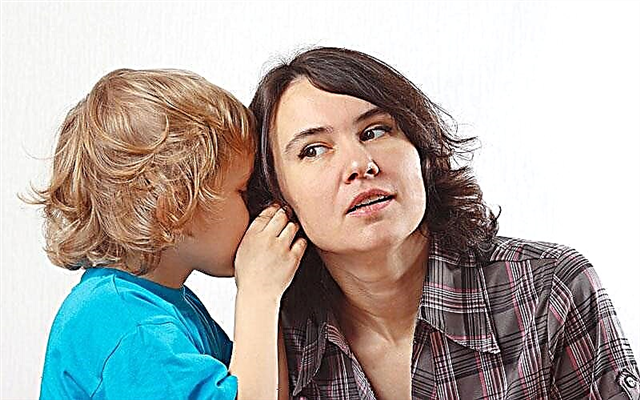
It has long been known that the occurrence and development of diseases in children and adults has a "share of fault" of the mental and psychological factor. More precisely, in any disease there is such a component, but there are ailments that are caused exclusively by the patient himself, that is, psychosomatic diseases. There are seven of them, and in psychosomatic medicine they are called the "Chicago Seven".
In this article we will look at them and tell you how to prevent such diseases.

What it is?
Psychosomatics is a field of medical science that is in the area of close contact between classical medicine and psychology. She considers a person as a whole, consisting of a soul and a bodily shell. Thus, diseases have a psychological prerequisite, most often pathological conditions cause negative feelings and emotions, fears, anger, anger... That is why positive-minded patients usually recover faster, and people in a state of depression get sick for a long time and hard, acquiring more and more new diagnoses.
American psychoanalyst Franz Alexander, considered one of the founders of psychosomatic medicine and psychoanalytic criminology, worked for many years at the University of Chicago Psychoanalysis in the 30s of the last century. It was there that he became the author of the theory of the psychosomatic occurrence of certain human ailments. The author called it the "Chicago Seven", under this name it is also known to modern doctors.
The big psychosomatic "seven" included diseases that were most often registered in patients for psychosomatic reasons, and the treatment of which, according to Franz Alexander, should be carried out first of all by a psychotherapist, and only then by a doctor of a narrow medical profile.

Let's take a closer look at these diseases.
Diseases and Causes
The classic list of diseases that need a psychosomatic approach to treatment looks like this.
Hypertension
Increased blood pressure in a person indicates that he emotionally blocked himself. From within, his own unspoken and unlived emotions press on him... These people are very sensitive, but they diligently drive their feelings into the very depths of their souls so as not to express them, not to show them to anyone.
High blood pressure is often an unfulfilled need for power. Aspirations such a person demonstrates very contradictory, sometimes sharp, direct, but cannot express their best feelings, or vice versa.
Relaxation therapy helps, teaching a person methods of expressing emotions, methods of psychological relaxation.

Ulcer
Peptic ulcer disease develops in people who are in great need of support and care. At the same time, they are strong enough, independent, to do everything themselves. Internal conflict breeds resentment, aggression and anger, especially in those situations when he was so waiting for support, but did not receive it.
With regard to unpleasant types, such people often say that they "do not digest" them, the need to be alone with oneself is often called "self-criticism", and when completely disappointed with the world, they withdraw and begin to "boil in their own juice", "digest themselves."
Psychocorrection helps to improve self-esteem, gain self-confidence, independence, as well as techniques for getting rid of resentment.

Bronchial asthma
It develops against the background of one of the most difficult psychological conflicts, in which a person needs tenderness and displays of love, but on the other hand, he is terrified of them. At the heart is fear, which prevents you from fully inhaling, and sometimes so strong that a person cannot breathe at all (attack).
Such people, according to Alexander's classification, most often have a hysterical disposition, practically do not know how or cannot express their emotions, accumulate them: this is what becomes the starting mechanism for an attack of suffocation. It is believed that it is often formed in childhood when there is a lack of parental love.
Relaxation, relaxation, self-esteem and forgiveness techniques are helpful.

Diabetes
It develops in those who chronically do not experience satisfaction, satisfaction with life. Most often - melancholic, as well as people who do not see the meaning and purpose of life, do not have strong desires.
Motivational psychotherapeutic techniques help.

Neurodermatitis, psoriasis
Franz Alexander linked the development of such dermatological problems with clinical self-sufficiency: self-doubt, low self-esteem. Modern psychoanalysts and psychologists have supplemented the description, adding fear and rejection of society, attempts to protect themselves from it, including such effective protection as skin lesions.
Relaxation therapy, taking sedatives, methods to increase self-esteem and communicative methods of psychotherapy, designed to reconcile a person with the outside world, help.

Rheumatoid arthritis
It develops due to a stagnant mistaken attitude towards people, in which a person controls himself well, he tends to sacrifice himself and help others, but his help always has an aggressive and negative "aftertaste". A person believes that his sacred duty is to help, and imposes help even when they do not need it.
A person is critical of others, has rigid principles, suffers from disappointments and resentments, gets angry. Often people who are very stubborn are treated for arthritis.
Hypnotherapy, change of attitudes and revision of previously unshakable principles for a given person helps.

Coronary syndrome
This disease is better known to modern readers as a manager's disease - a predisposition to heart attacks, ischemia. It develops in purposeful and active people, focused on their business, regularly coping with severe fatigue. They are constantly on the cutting edge, tense, have one or more chronic diseases... They do not pity others and themselves, do not love themselves, but only compete.
If a situation arises in which control is inappropriate or untimely, the person, feeling that he is losing, strains more than usual, which leads to ischemia and an attack.
A change in occupation, relaxation therapy, revision of the value system, redistribution of attention to other areas of life helps.
Supplements
Psychosomatic medicine does not stand still, and since the middle of the last century, researchers have found a number of other ailments that quite often have psychosomatic causes: hypothyroidism (hyperfunction of the thyroid gland), female and male infertility, cystitis in adults and children, enuresis, bronchitis, allergic reactions ...
It turned out that in most children, chronic illnesses or frequent episodes of illness are 85% psychosomatic, since the expression of emotions, control over them is inaccessible to children due to age-related reasons, and the inability in childhood to somehow influence the external situation, possibly created by the parents, forms not only diseases, but also pathological destructive beliefs for the rest of their lives.




